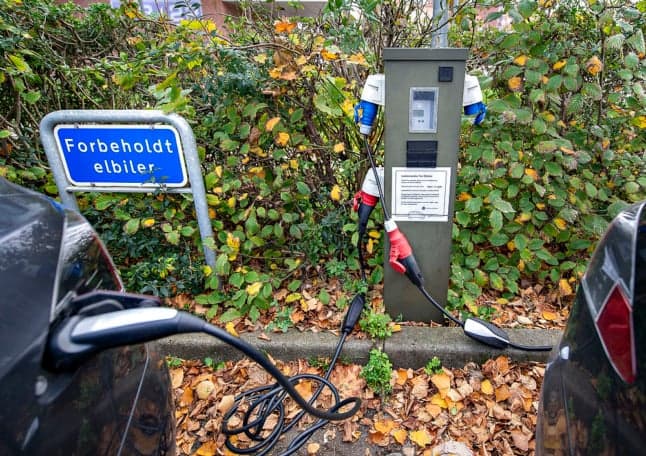Denmark signals support for zero-emissions zones in cities

A new proposal presented by the government on Wednesday could give local authorities the ability to designate zero-emissions zones in cities.
The zones would only allow access to vehicles without combustion engines, such as electric cars.
Wednesday’s government proposal states that there is already demand at municipalities for zero-emissions zones in set parts of cities in order to reduce air and noise pollution.
The government said it wants to accommodate that demand while still enabling people to live, move around and shop in the zones.
“The government will therefore look closely at whether affected residents and businesses in the area have realistic alternatives and that there would be time to meet the criteria,” the government writes in the proposal.
“A framework must also be set to ensure access for necessary use of industrial vehicles, including delivery of goods,” it adds.
A long period of transition would be required in municipalities that decide to take up the option of establishing the zones, according to interest groups for the automotive industry.
Goods vehicles could be amongst those to face the largest obstacles in such a situation, as the range on zero emissions goods vehicles on the market is limited, according to the Confederation of Danish Industry (DI).
“That means it would be difficult to ensure supply to cities where the requirement for zero emissions might be effective,” DI’s CEO Lars Sandahl Sørensen said via written comment.
The association for car importers in Denmark, De Danske Bilimportører, said that the zones would be difficult to implement without a long phasing-in.
“The proposal for zero emissions zones in particular is very far reaching and can hardly be implemented without a long phasing in period, as the range of electric and hydrogen cars with sufficient range should be greater,” the organization’s CEO Mads Rørvig said in a statement.
FDM, an association for motorists in Denmark, went further in its criticism of the plan.
“It’s far too early and disproportionate to have zero-emissions zones that would exclude 98 percent of Danish motorists,” FDM senior consultant Dennis Lange said in a written comment.
“This is a symbolic policy which will have no measurable effect on pollution,” he added.
READ ALSO: Lower Danish taxes backed for home electric car charging
Comments
See Also
The zones would only allow access to vehicles without combustion engines, such as electric cars.
Wednesday’s government proposal states that there is already demand at municipalities for zero-emissions zones in set parts of cities in order to reduce air and noise pollution.
The government said it wants to accommodate that demand while still enabling people to live, move around and shop in the zones.
“The government will therefore look closely at whether affected residents and businesses in the area have realistic alternatives and that there would be time to meet the criteria,” the government writes in the proposal.
“A framework must also be set to ensure access for necessary use of industrial vehicles, including delivery of goods,” it adds.
A long period of transition would be required in municipalities that decide to take up the option of establishing the zones, according to interest groups for the automotive industry.
Goods vehicles could be amongst those to face the largest obstacles in such a situation, as the range on zero emissions goods vehicles on the market is limited, according to the Confederation of Danish Industry (DI).
“That means it would be difficult to ensure supply to cities where the requirement for zero emissions might be effective,” DI’s CEO Lars Sandahl Sørensen said via written comment.
The association for car importers in Denmark, De Danske Bilimportører, said that the zones would be difficult to implement without a long phasing-in.
“The proposal for zero emissions zones in particular is very far reaching and can hardly be implemented without a long phasing in period, as the range of electric and hydrogen cars with sufficient range should be greater,” the organization’s CEO Mads Rørvig said in a statement.
FDM, an association for motorists in Denmark, went further in its criticism of the plan.
“It’s far too early and disproportionate to have zero-emissions zones that would exclude 98 percent of Danish motorists,” FDM senior consultant Dennis Lange said in a written comment.
“This is a symbolic policy which will have no measurable effect on pollution,” he added.
READ ALSO: Lower Danish taxes backed for home electric car charging
Join the conversation in our comments section below. Share your own views and experience and if you have a question or suggestion for our journalists then email us at [email protected].
Please keep comments civil, constructive and on topic – and make sure to read our terms of use before getting involved.
Please log in here to leave a comment.